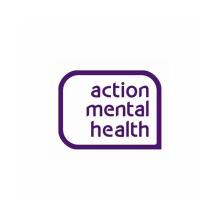Anxiety
Anxiety is what we feel when we are worried, tense or afraid. Most people feel anxious at times. Sometimes feelings of anxiety can be strong and last longer than normal and this can make it hard to deal with everyday life. Help and support is available.
What is anxiety?
Anxiety is a feeling of unease, fear or worry, especially around things which are about to happen or we believe may happen in the future. Everyone experiences anxiety differently. Feeling anxious at times is a normal response to certain situations, such as exams, job interviews or going to a new place. Some people find it hard to control their worries, which can affect their daily lives.
Anxiety may present a problem if feelings of anxiety last for a long time or cause a person to avoid taking part in everyday activities.
Signs of anxiety
Anxiety can cause physical and behaviour changes, which can result in symptoms like:
- nausea (feeling sick);
- strong, fast or irregular heartbeat;
- headaches and muscle tension;
- feeling dizzy or lightheaded;
- irritability;
- difficulty sleeping and/or tiredness;
- feeling restless or having difficulty concentrating;
- feeling like your mind is really busy with thoughts;
- feeling constantly unsettled or having a sense of dread;
- dwelling on negative experiences, or thinking over a situation again and again (this is called rumination).
Causes of anxiety
It’s not clear why some people experience anxiety as a mental health problem. There are some factors or a combination of factors that may affect feelings of anxiety. These are:
- an imbalance of brain chemicals (serotonin and noradrenaline), which are involved in the control and regulation of mood;
- overactivity in areas of the brain that are involved in behaviour and emotions;
- having a long-term health condition or another mental health condition;
- previous life experiences, particularly if they were stressful or traumatic;
- drug and alcohol use (including some prescription drugs);
- everyday life, including stress and diet.
Things that might help with anxiety
If you are experiencing anxiety there are many things that you can do to help yourself manage how you are feeling.
Talk to someone
Telling someone you trust what you are feeling anxious about might help. They may be able to share their experiences and talk you through your feelings. Sometimes sharing how we feel can be the first step towards feeling better.
Try breathing exercises
Gently breathe in through your nose and out through your mouth, keeping the pace slow and regular. Then starting at your toes and working up to your head, slowly tense and then relax all the muscles in your body. Keep doing this for around five minutes.
Try to shift the focus of your attention
Distracting yourself from the anxiety you are feeling may help. Try to shift the focus of your attention to something else that you like or find interesting. It could be studying the details on a tree’s leaf, completing a wordsearch or looking up interesting facts about your favourite football team or band (try reading them out loud).
Reassure yourself
Remind yourself that the symptoms and feelings you are experiencing are because of anxiety and that the feelings will pass.
Write it down
Keep a note on your phone or in a diary each time you get anxious. Use these to identify what your triggers are. Make a plan for how you could deal with a similar trigger next time. Also, write down when you successfully manage your anxiety. This will help you learn what works for you and let you feel more in control.
Be active
Physical activity can help manage feelings of anxiety. Go for a walk or a run. If you want to stay home, dance to your favourite music or do some chair-based exercises. It doesn’t matter what activity you choose, as long as you are moving your body.
Be mindful of what you eat and drink
Many people find eating a healthy, balanced diet can help manage anxiety. You should also try to reduce or avoid caffeine, nicotine, alcohol and other drugs.
Talk to your GP
If you’ve tried to manage your anxiety and aren’t feeling better, you should make an appointment with your GP. A GP can advise on other support available and may refer you to a mental health professional who works in the GP practice. A GP can rule out causes, such as some medical conditions or side effects of certain prescription or non-prescription drugs. Medication may be available to support some people to manage anxiety.
The GP or mental health professional will be aware of other services in your area that may help and may signpost or refer you to these.
Talking therapies
Talking therapies involve talking to a professional trained to help a person explore their feelings. They let someone talk about their thoughts and feelings and the effect these can have on their behaviour and mood. Talking about your thoughts can help you notice things that may be helpful to change.
You can find talking therapies by speaking to your GP or find a service that can offer support. If you use talking therapies and things do not improve, you should talk to your GP.
Cognitive behavioural therapy
Cognitive behavioural therapy (CBT) encourages a person to take part in activities and to write down their thoughts and problems. It can help you identify and counteract negative thoughts. Self-help CBT workbooks, online CBT programmes (including stress control classes) and free apps are available.
CBT is a form of talking therapy. You can speak to your GP about it or find services that offer it. If you use CBT and things do not improve, you should talk to your GP.







